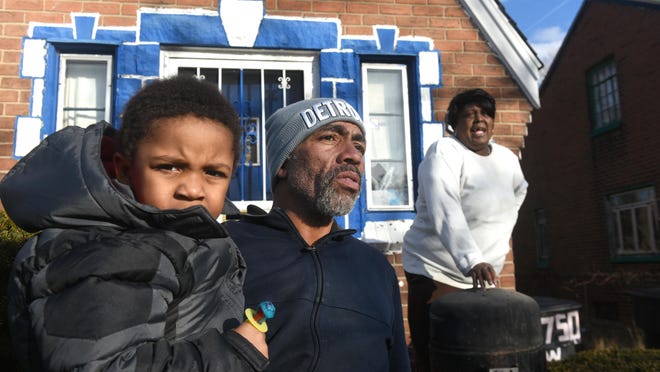Detroit council toughens rules for landlords
The Detroit City Council on Tuesday voted unanimously to update its rental regulations, including enacting rules that stop landlords from collecting rent if they haven’t passed city inspections.

Under current law, housing units are supposed to be registered and have passed city inspections by obtaining a certificate of compliance before they can be rented out. But city officials admit they have let most landlords ignore the rules for more than a decade.
Supporters of the changes said they want to make sure all landlords comply with safety regulations, including lead poisoning prevention efforts. Lead inspections are a part of obtaining a certificate of compliance.
“We hope it will improve the quality of life in our neighborhoods and entire city,” said Councilman Andre Spivey, who sponsored the ordinance changes.
But some landlords have said enforcing inspections with the threat of rent being withheld will add to the challenges of doing business in the city, which include incidents of theft and destructive tenants. Some predicted the escrow provision would be challenged in court.
Last year, just 4,174 addresses were registered and inspected, in a city the U.S. Census Bureau estimates as having 140,000 rental units. That’s down from the 5,235 addresses the city said were registered 10 years earlier under former Mayor Kwame Kilpatrick.
As part of a year long investigation published Oct. 5-6, The News reported that in 2015 only 1 of every 13 eviction cases was filed on an address legally registered with the city.
The News found families facing eviction in homes that were never inspected by the city and had numerous problems: lack of heat in the winter, hazardous electric systems, missing windows, infested with mice and one with a sewage-filled basement.
Under the updated regulations and after a phase-in period of at least six months, tenants who live in rentals that haven’t passed city inspections could put their rent in an escrow account for 90 days. If the landlord hasn’t gotten a city certificate by the end of the 90-day period, the renter will be able to keep the money.
After that, a tenant can continue to put rent in escrow if the landlord does not comply. The city would hire a third-party company to manage the escrow fund.
The new escrow provision will be phased in, and each neighborhood will have different deadlines.
Renters who are escrowing their payments have the right to “retain possession of the rental property,” according to the updated regulations.

Richard Clay, of the group People for Utilities Reform, has said the ordinance would hurt small, black landlords, cause more foreclosures and “pit renters and landlords against each other.”
But Ted Phillips, executive director of the United Community Housing Coalition, said during an earlier public hearing that the updated changes were needed.
“We are getting more and more landlords in the city of Detroit,” Phillips said. “We need some clear rules that these new landlords and old landlords understand what they are supposed to do.”
The changes also loosen some regulations for landlords who the city says are following the rules.
Although the city regulations haven’t been regularly enforced, they were some of the toughest in Michigan. In Detroit, rentals were required to be inspected yearly and have annual lead paint inspections by certified inspectors.
Under the new ordinance, landlords who have no blight violations and have paid their property taxes or are on a county payment plan would be put on a two-year inspection schedule for multi-family properties, and every three years for one- to two-family rentals.
The lead requirements are changed as well. Landlords would still need an initial $450-$700 lead inspection but after that would only need an annual $250 risk assessment, where a trained inspector looks for problems like peeling paint.
Clear Corp/Detroit, a nonprofit that works to keep homes safe from lead, supports the changes, but the group has said it’s important to stay vigilant on lead paint hazards.
Mayor Mike Duggan said in a statement Tuesday that an announcement will be coming soon outlining compliance deadlines.
“Every Detroiter who is a renter deserves to be able to live in a home that is safe and up to code,” Duggan said in the statement. “And every landlord deserves a fair and efficient city process.”
cmacdonald@detroitnews.com
(313) 222-2396